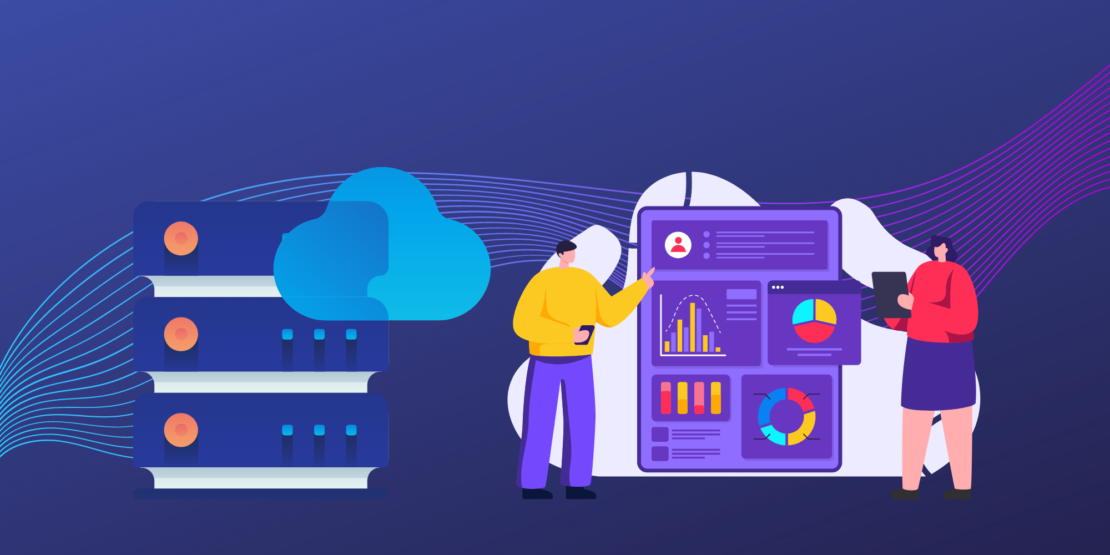
A database is a system whose task is to store large collections of information. The aim is to ensure security, and at the same time to guarantee users easy and convenient access to the necessary data and the possibility of processing it. To make this possible, database management systems are necessary in this case. Find out what they are and how they work.
BI database management systems – what is it?
At the beginning, it is worth explaining what BI itself is. This abbreviation refers to the term Business Intelligence which can be translated as Business Analytics. This group includes various types of systems that allow for the integration of wide data resources related to the organization. Their task is to process the obtained information in such a way that it becomes reliable indications about the current state of the company, trends related to its activities, as well as support in making the right investment decisions.
Due to such wide functionality, BI systems are becoming more and more popular every year. Currently, due to scalability – they are used not only in very large, international corporations, but also in medium-sized enterprises that want to increase their competitiveness.
All BI systems are based on extensive databases. Most often they use data warehouses, which are aggregates of information from various sources and ensure their unification for further processing. Activities on such data are handled by BI database management systems.

How does BI database management systems work?
BI database management systems, like other software in this category, are created to enable the execution of all operations on the data entered into the database.
The quality of the system affects the detail and efficiency of analyzes and reports generated by BI software.
What exactly activities on the data can be mentioned? This is a very wide group, which includes:
- data input and output,
- remembering and storing,
- searching for information and its presentation,
- updating data,
- encoding and decoding information in the database,
- performing arithmetic, statistical, algebraic and logical operations on data sets.
This means that a properly selected database management system allows you to speed up analytical processes and deepen the calculations made. Additionally, the system increases the usefulness of the obtained result data.
Modern databases can be equipped with additional mechanisms that allow for:
- creating a graphic environment that is the basis of the user interface,
- creating a data warehouse,
- integration of the local database with cloud computing – in order to ensure remote access to it.
There are many more possibilities. The options you choose depend on the needs of the organization, as well as the scale of its operations and the budget for investing in the Business Intelligence system.

What are the tasks of the database management system?
The database management system allows you to carry out all operations on the information entered into the set. But what exactly does it give? Here are its key features.
Possibility to create new databases
The database management system is the operating environment for creating new databases. This means that the selection of a database management system must precede the process of creating an information set.
Option of selective access to data
BI database management system allows you to send queries to get specific results. Therefore, you can filter information or ask the system to collate individual categories of data. This is a job that is performed by a data scientist or business analyst.
Ensuring safe storage of data sets
A properly selected database management system guarantees the security of the information placed there. In addition, it provides stable access to information and efficient processing of inquiries. It also guarantees data integrity.
Data access protection
In the database management system it is possible to grant different levels of access to information. So that employees of lower management levels receive only data that is not covered by company secrecy. The system can also assign passwords to databases, which provides additional protection against the leakage of sensitive information.
Integration with other systems
Business Intelligence tools do not work in a vacuum. This means that they must be associated with other software used in the company – e.g. with an ERP, CRM or accounting and billing system. Efficient communication between these applications is the best guarantee of constant information exchange and its current update.
Optimization of analytical processes
A properly selected BI database management system ensures that the analysis is carried out in a short time, without errors and the need for a large amount of human work. As a result, the use of the system means speed of business analytics, lower costs and minimization of resources necessary to administer the set of information.

How to choose the right BI database management system?
The implementation of the BI system is an important step for the company, which is the result of a multi-stage process. Therefore, the answer to the question of which database management system should be chosen is not easy. Much depends on the business profile of the company, the scale on which it operates and the expectations towards data provided by business analytics.
That is why the BI system implementation process should be supported by an audit of the organization’s needs. At this stage, it is worth cooperating with experts in order to:
- look at the current business processes in the company,
- check what software is currently used in the organization, how many databases are used in it and what are the possibilities of their integration,
- clearly define the purposes for which business analytics are to be introduced. There are many possibilities, and the expectations also depend on which BI database management system will be chosen.
Remember that the BI implementation process is usually lengthy. It is not about the time of actual work that is done in the company to integrate the software and databases. It is more about the selection and preparation of specific, dedicated solutions. It depends on the analysis before implementation and the profitability of the entire investment.
The database management system as well as the entire BI software should be adapted to the real needs, not the designed requirements of the company. There is no point in investing in multi-functional and detailed business analytics if you know that you will not use the full potential of this solution. It is much better to bet on a scalable system, the capabilities of which can be expanded over time. In this way, the BI system can grow with your organization.
Do you have any questions or are you looking for the perfect solution for your company?
Schedule a free consultation. Consult your company needs with our experts. Learn about solutions that will help your company improve business processes and ensure data security.
 WhatsApp
WhatsApp



